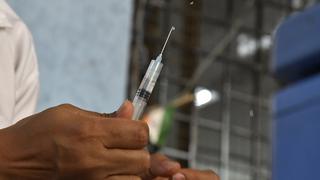
The tetravalent dengue vaccine strain (TV003/TV005) originally developed by the National Institutes of Health, the U.S., has shown promising results in preclinical and clinical trials worldwide. Representational File Image
| Photo Credit: The Hindu
Following an announcement by the Indian Council of Medical Research (ICMR) and Panacea Biotec Limited to initiate third phase trials, about 8,000 of the targeted 10,000 participants have enrolled in the third phase of clinical trials for a dengue vaccine in India, Manoj Murhekar, Director, National Institute of Epidemiology, ICMR, Chennai, told The Hindu.
The trial will be rolled out at 20 centres across the country, Dr. Murhekar said. “In India, all four serotypes of the dengue virus are known to circulate or co-circulate in many regions, so it’s vital to ensure that we have an effective vaccine that achieves good efficacy for all four serotypes,’’ he added.
The trial is primarily funded by ICMR, with partial support from Panacea Biotec. Participants will be followed up for two years under projects spread across various centres, including Chennai, Pune, Hyderabad, and Delhi.

There is currently no antiviral treatment or licensed vaccine for dengue in India.
“This landmark trial will evaluate the efficacy of India’s indigenous tetravalent dengue vaccine, DengiAll, developed by Panacea Biotec. The first participant in this trial was vaccinated last year at Pandit Bhagwat Dayal Sharma Post Graduate Institute of Medical Sciences, Rohtak,’’ a release issued by the Union Health Ministry said.
The tetravalent dengue vaccine strain (TV003/TV005) originally developed by the National Institutes of Health, the U.S., has shown promising results in preclinical and clinical trials worldwide. Panacea Biotec, one of three Indian companies to receive the strain, is at the most advanced stage of developing a vaccine. The company has worked extensively on these strains to develop a full-fledged vaccine formulation and holds a process patent for this work. The first and second phases of the clinical trials of Indian vaccine formulations were completed in 2018-19, yielding promising results.
Dengue is a major public health concern in India, which ranks among the top 30 countries with the highest incidence of the disease. The global incidence of dengue has been steadily increasing over the past two decades, with more than 129 countries reporting dengue viral disease by the end of 2023, according to the World Health Organization (WHO).
In India, approximately 75-80% of infections are asymptomatic, yet these individuals can still transmit the infection through the bite of Aedes mosquitoes. Among the 20-25% of cases where symptoms are clinically apparent, children are at a significantly higher risk of hospitalisation and mortality. In adults, the disease can escalate into severe conditions, including the dengue hemorrhagic fever and dengue shock syndrome. The dengue virus has four serotypes, 1-4, with low cross-protection against each other, which means individuals can experience repeated infections.
Published – July 12, 2025 08:13 pm IST













Leave a Reply